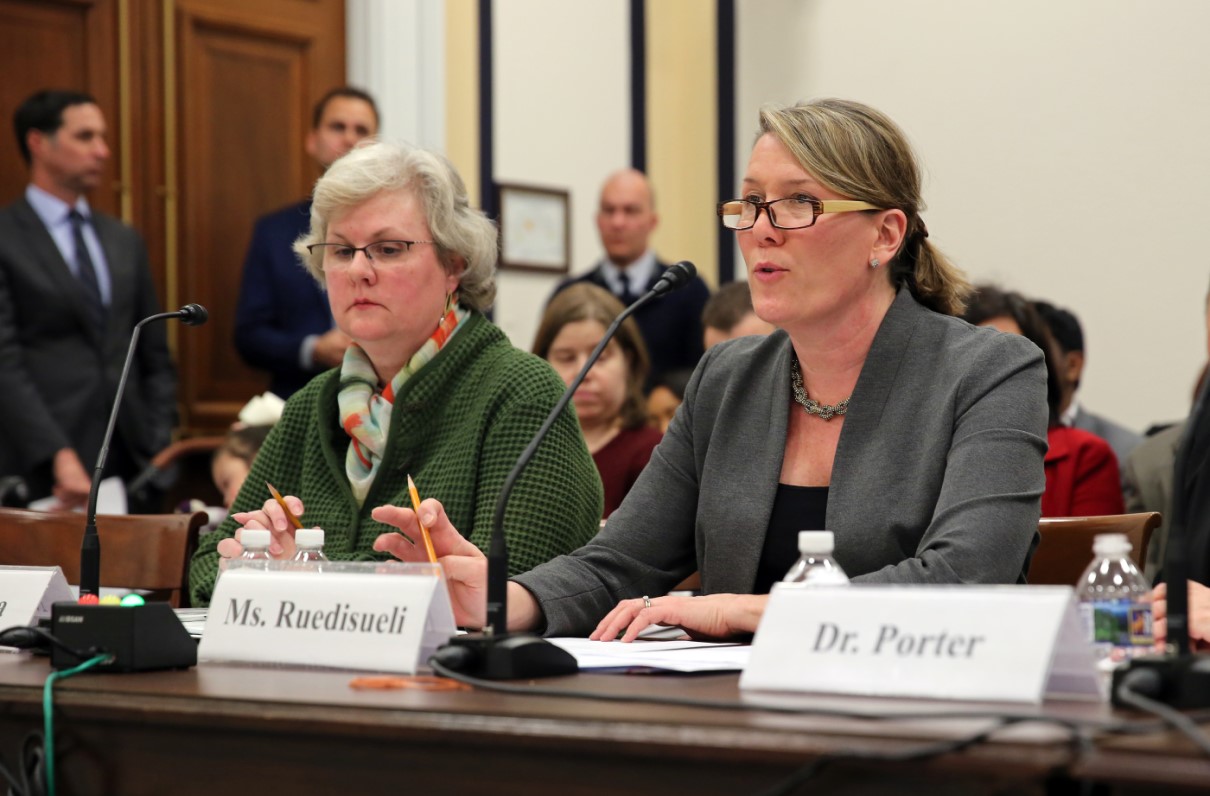By Karen Ruedisueli and Eryn Wagnon
The House and Senate versions of the FY 2021 National Defense Authorization Act (NDAA) are chock-full of improvements to better support military families with special needs, including many provisions addressing concerns raised by MOAA as part of steadfast advocacy efforts.
MOAA has been a leading voice for these families, offering testimony in February before the House Armed Services Personnel Subcommittee to outline gaps in the Exceptional Family Member Program (EFMP) and health care. Additionally, MOAA has partnered with the Military Child Education Coalition in working to ensure military children with special needs receive adequate education resources despite their highly mobile military lifestyle.
[MORE NDAA NEWS: MOAA’s Summer Storm 2020]
Here are some of the improvements put forward in the NDAA versions, and some details on where MOAA stands on those provisions.
Respite Care
Section 569B of the House bill directs DoD to standardize the EFMP respite benefit, including the number of hours available for this benefit, across the services. Standardization must include an assessment of military family respite care needs, not simply standardized respite hours at the lowest common denominator across the services.
EFMP respite policy also should remain flexible enough to address military family needs across the services, as they change over time and with varying op tempo levels.
The Senate bill does not address EFMP respite care.
Case Management Model
The House EFMP provision directs DoD to develop a case management model to ensure families receive needed assistance. Families enrolled in EFMP span a vast spectrum of needs, ranging from conditions that require only periodic monitoring by medical specialists to medically complex conditions that require numerous specialty providers, ongoing therapies, and/or in-home nursing care, among other services.
[RELATED: More Spouse and Family News From MOAA]
It is critical that the EFMP case management model targets services to families with higher needs, particularly during times of transition such as a PCS move.
While the Senate bill does not specifically address case management, it does direct DoD to right-size EFMP to ensure sufficient staffing dedicated to providing family support services.
MOAA supports the language regarding case management and family support staffing in both bills.
Metrics
While both the House and Senate versions direct DoD to establish metrics to monitor and evaluate the EFMP, MOAA supports the more detailed requirements in the Senate bill. We appreciate the Senate addressing recommendations in MOAA’s testimony by including metrics to measure compassionate reassignments and military family satisfaction with the program.
Seamless Continuity of Services
While the House version directs DoD to establish a process to ensure seamless continuity of services at the new duty station, it does not include specific changes to TRICARE policy. To achieve seamless transition of specialty care – that is, to avoid gaps in medical care due to TRICARE Prime referral requirements and specialty provider waitlists – TRICARE referral policy must be changed to allow EFMP families to obtain specialty care referrals for the gaining location in advance of PCS moves.
Allowing families to get specialty care referrals at the gaining location before the PCS move would minimize disruptions in care by enabling families to get on provider waitlists before moving to the new location.
The Senate does bill does not include language to improve continuity of services.
Addressing Education Concerns
Some military families report difficulties in maintaining Free and Appropriate Education (FAPE) as they transfer their child’s individualized education plan (IEP) to a new school district. This can be especially burdensome as military families move every two to three years, on average.
Both the House and Senate versions of the FY21 NDAA call for a Government Accountability Office (GAO) study to be conducted on the rate of disputes for FAPE among military families. The Senate language provides a more detailed scope for the study and would require the services to track and collect data on special education disputes military families undergo to give them better visibility on the scope of this issue and address accordingly. The House bill also includes language for the services to provide attorneys to advocate for military student education plans, should a dispute occur.
Appropriations Update
In addition to these NDAA provisions, the House passed its version of defense appropriations legislation (H.R. 7617) July 31, which included an amendment that will increase EFMP funding by $6 million. The floor amendment, introduced by Reps. Jackie Speier (D-Calif.) and Susan Davis (D-Calif.), is designed to allow for implementation of the above provisions, including the staffing requirements for special needs attorneys.
MOAA Knows Why You Serve
We understand the needs and concerns of military families – and we’re here to help you meet life’s challenges along the way. Join MOAA now and get the support you need.
